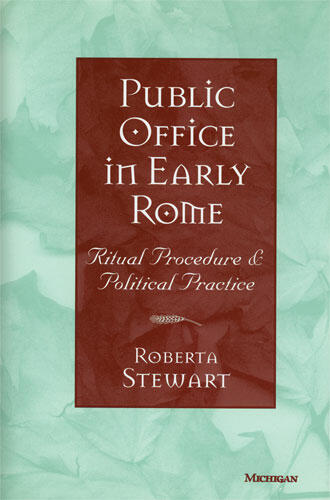Public Office in Early Rome
Ritual Procedure and Political Practice
A study of the important interrelations between Roman religion and government
Description
". . . [A]n excellent, erudite book."
---Bryn Mawr Classical Review Studies of Roman politics have traditionally emphasized individual personalities or groups of personalities and have explained political behavior in terms of contests for individual power or group power. By contrast, Roberta Stewart focuses on being the religious institution of the "allotment" of duties among elected officials as a primary control on Roman politics. She examines in detail the procedure of allotment, the roles of popular election and allotment in defining public authority and duty, and the relationship between the Roman Senate and elected officials. Allotment is seen to reflect Republican ideology about the divine sanction of Roman leadership, military enterprise, and empire.
Allotment is examined in particular historical contexts, and the successive formations of public office in 444, 367, and 242 b.c.e. are analyzed as a series of political solutions in an evolving cultural context. The discussion documents the ritual definition of allotments and the historical development of distinctive features of Republican political office: the equal authority of colleagues (collegiality), the individual authority and accountability for an allotted function (provincia), the procedural alternative to allotment (comparatio), and the hierarchy of offices with imperium (the consuls and praetors).
Public Office in Early Rome will be of great interest for scholars and students of Roman religion, government, and history.
Roberta Stewart is Associate Professor of Classics, Dartmouth College.
Roberta Stewart is Associate Professor of Classics, Dartmouth College.
Reviews
". . . [A]n excellent, erudite book."
—Bryn Mawr Classical Review

